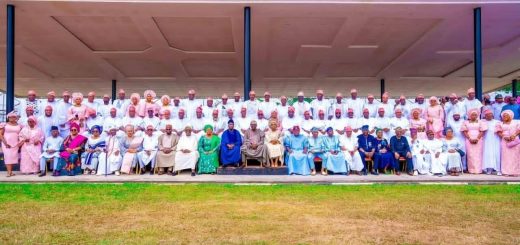Dangote Wants Clean Petroleum Products Included In First Ban Plan, but Industry Players Are Against It
Africa’s billionaire businessman and President of the Dangote Group, Alhaji Aliko Dangote, has called on President Bola Tinubu to include refined petroleum products in the list of items banned under the Federal Government’s ‘Nigeria First’ policy. However, his proposal has met strong opposition from oil marketers and industry analysts.
The ‘Nigeria First’ Policy Explained
Launched in May, the policy aims to prevent government agencies from importing goods that Nigeria can produce locally. Under this directive, procurement of foreign goods and services already available within Nigeria now requires special justification or a waiver from the Bureau of Public Procurement. The goal is to stimulate local production and reduce reliance on imports.
Dangote’s Position and Concerns
Speaking at the recent Global Commodity Insights Conference on West African Refined Fuel Markets, hosted by the Nigerian Midstream and Downstream Petroleum Regulatory Authority in collaboration with S&P Global Insights, Dangote made a compelling case. He urged that petroleum products—such as petrol and diesel—be classified as items that should not be imported.
Dangote argued that current import practices undermine local refining efforts and discourage further investment in Nigeria’s refining sector. “The importation of fuel is killing local refining capacity and fostering unfair competition,” he stated.
He further highlighted that Nigeria and other African nations are facing a surge in the dumping of low-quality, often toxic, petroleum products—substandard by European standards—that could pose environmental and health risks.
Unfair Competition and the Role of International Subsidies
Dangote pointed out the impact of subsidized Russian crude and fuel imports, which distort local pricing and competitiveness. “Discounted Russian petroleum products are flooding Nigeria, driving prices below costs and creating an uneven playing field,” he explained. Currently, petrol and diesel are sold at about 60 cents per liter in Nigeria—cheaper than in countries like Saudi Arabia—largely due to this dumping.
He called on African governments to adopt protective measures similar to those in the US, Canada, and Europe to shield their local industries from such unfair practices, emphasizing that the goal is not monopoly, but fostering local investment and sustainable growth.
Proof of Nigeria’s Growing Refining Capacity
To support his argument, Dangote shared that Nigeria has become a net exporter of petroleum products, with his own refinery exporting approximately 1.35 billion liters of petrol within just 50 days, from June to July 2025. He proudly stated, “Nigeria is now exporting about 1 million tonnes of petrol—roughly 1.35 billion liters—within two months.”
Industry Reacts: Marketers Oppose the Ban
Despite Dangote’s optimistic outlook, industry players are cautious. The National Publicity Secretary of the Independent Petroleum Marketers Association of Nigeria, Chinedu Ukadike, warned against banning petroleum imports. “Such a move could jeopardize the ability to check inflation and maintain market stability,” he said. Ukadike emphasized that imports still play a crucial role and should continue alongside local production.
Similarly, Billy Gillis-Harry, President of the Petroleum Products Retail Outlet Owners Association of Nigeria, argued that no single company should dominate the downstream sector in a free-market economy. “Importation provides stability and multiple sources of energy—giving consumers options and ensuring energy security.”
Expert Opinions: Caution Against Monopolistic Tendencies
Professor Dayo Ayoade, an energy expert from the University of Lagos, echoed these concerns, warning that a ban could foster monopolies and threaten energy security. “We rely on a diversified petroleum supply chain. Limiting imports entirely could give undue dominance to a single refiner—Dangote’s or otherwise—leading to long-term instability,” he noted.
He also highlighted the importance of international trade laws, indicating that outright bans could breach global trade agreements.
Call for More Refineries and Industry Revitalisation
During the conference, Dangote urged regulators to lend support in building additional refineries, criticising the holding of dormant licenses. Responding to this, IPMAN’s spokesperson agreed, emphasising that Nigeria needs more refining capacity to boost exports and reduce reliance on imports.
While Dangote advocates for protective policies that favour local refining—highlighting Nigeria’s increasing export volumes—industry players and experts remain cautious about implementing outright bans. The ongoing debate underscores the need for a balanced approach that supports local production, maintains market stability, and aligns with international trade commitments.



